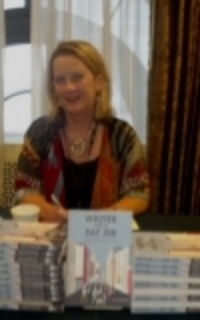In-Person or Online? Which Writing Workshop Is Best for You?
Leading a virtual writing workshop during the fall of 2020.
In late spring 2020, as we all adjusted to the COVID-19 lockdown, I moved most of my creative and wellness-writing workshops online.
Two months later, by mid summer, I had learned this: It’s not enough to be a talking head blathering away on that screen.
Instead, there are two must-haves and no, they won’t teach you this in Zoom 101:
(1) A commitment to student safety, inclusion and writer agency and
(2) Awareness that we all learn differently, so it’s important to have alternate or back-up ways in which to share curricula, writing prompts, sample readings, ways to engage and write.
Actually, now that I think about it, these also apply to in-person workshops, but in a “live” workshop, these needs are more inferred than deliberate.
So Which is Better? Virtual or In-Person Writing Workshops?
So much of it comes down to our comfort level with—or willingness to try— technology. Also, as I learned in my long-ago undergraduate teaching college in Dublin, all of us learn differently.
As I’ve written before, each workshop delivery mode has its advantages and drawbacks. Now, as we transition back toward—hopefully—a new, old normal, these might help you pick between virtual or in-person offerings.
Virtual Writing Workshops: 4 Advantages
Convenience: You don’t have to leave your own home. You can even take a workshop while visiting the in-laws (hey, maybe that’s the best time).
Geographic diversity and reach: In a personal essay workshop this winter, as well as learners from New England states, I had a student from Aruba and a student from outside Dublin, Ireland. Also, virtual workshops are almost weather proof, so less likely to be canceled.
Cost: Generally speaking, online workshops are more cost-effective. Some are free. You also save on overnight accommodations, public transportation, childcare, driving, parking, lunch and other costs.
Diversity of learning styles and inquiry modes: Many workshop leaders will provide access to the audio visuals or the slides for your own, off-camera viewing—plus handouts. Depending on your style, you can ask questions in a variety of ways. Here’s a tip: If you ask for the instructor’s post-event slides, ask nicely. Sharing after-class curricula is a kindness, not an expectation.
Virtual Writing Workshops: 4 Downsides
Zoom fatigue: From Stanford University to the Harvard Business Review, many researchers and experts agree: Online and on-camera interactions are tiring. According to Stanford, they’re more tiring for women than for men.
Reduced or distracted student-to-student engagement: In my experience, many students engage more online. A few get distracted by whatever is beeping on their other electronic devices or barking from their back rooms. As an instructor, it’s up to me to manage this so that all registrants have a good experience.
Student privacy: Particularly for memoir, creative nonfiction or expressive writing students, we never know where the writing will take us. That’s why, often, I do not allow the hosting organization to record. It’s about respect and safety. I also invite participants to take themselves off camera while they’re writing—depending on their comfort levels. And, of course, sharing writing is always optional.
Impatient students: As our pandemic wore on, there was reduced tolerance for small, fixable issues, such as a time lag while sharing a screen or video or audio clip. For a tiny few students, frustrations with personal technology setups become a reason to scapegoat someone—anyone—for a WiFi fail. Would we ever act like this in a face-to-face setting?
Staying Human in a Digital World
Even for the techno-shy, the need and motivation—or for some, the isolation— can outweigh the trepidation.
For example, this past January, for one of my free workshops, I had one participant who had never taken an online class, but she taught herself Zoom 101 so that she could connect and create with the rest of us. Her presence and writing were a beautiful gift.
Later, after a separate workshop for a different organization, a student sent me this note:
This ongoing COVID can make me feel like I’m in a cultural wasteland; your classes are a welcome, fully equipped lifeboat.”
Virtual or In-Person Writing Workshops: What Will be the 2022 Old-New Normal?
As we enter the COVID pandemic’s third year, as writing follows the rest of the world toward a model we might call “skittish hybrid,” will we find it tough to adjust to sitting in a room and chatting with other, flesh-and-blood writers?
I’m guessing it will be different for each of us and our personalities or learning styles.
I’m actually leading two, in-person workshops this summer. I’m also leading two virtual classes. So I’m not retiring the audio head set or the sweat pants or the fuzzy slippers. Not yet. Maybe never.
Which do you prefer? In person- or virtual writing workshops? Feel free to write your preferences and experiences in the comments below.
Enjoyed this post? You may also enjoy these articles:
Questions to ask before you agree to lead a workshop or retreat
OK, Zoomer: How to get the most out of a virtual writing workshop

